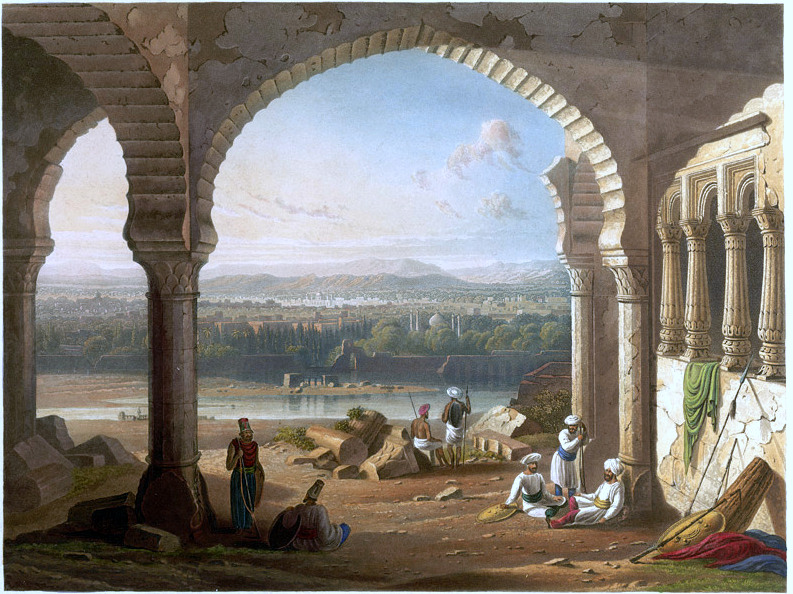
#Aurangabad has been renamed as Sambhaji Nagar. It was never associated with Sambhaji and had its origin in Nizamshahi Sultanate. It was a nondescript village before it was developed by Malik Ambar in 1610. After fall of Nizam Shāhī dynasty in 1633, city came under Mughal rule. 

It was later renamed Aurangabad after it became the headquarters of #Aurangzeb during his viceroyalty over Deccan. The mausoleum complex of Bibi Ka Maqbara, an imitation of the Taj Mahal in Agra, was built in honour of his first wife, Dilras Banu Begum (died 1657).
Aurangabad remained the headquarters of the independent nizams (rulers), but it declined when the capital was moved to Hyderabad in Hyderabad princely state. With the dissolution of the princely state in 1948, Aurangabad was included in Hyderabad state in newly independent India.
It later became part of Bombay state (1956–60) before that state was divided into Maharashtra and Gujarat.
In 1666, accompanied by 1,000 troops, Chatrapati Shivaji Maharaj arrived at Aurangabad on his way to Agra. Safshikan Khan, governor, treated him with scant respect. For this , he was severely reprimanded by Jai Singh and made to pay a courtesy call on Chatrapati Shivaji Maharaj.
In 1668, it nearly almost saw war between imperial troops under Diler Khan, and those commanded by Prince Muazzam, the viceroy. In 1681, after plundering Burhanpur, the Marathas assembled in the neighbourhood of the Satara hills in order to attack Aurangabad.
It was abandoned on hearing arrival of viceroy, Khan Jahan. Same year, Khan Jahan Bahadur erected a wall around city to protect it against attacks of Marathas. It was done at order of Emperor, and cost rupees three lakhs. Two years later, the Emperor himself arrived at Aurangabad
Shortly after the death of #Aurangzeb, Aurangabad slipped from hands of Moghals. In 1720, Nizam-ul-Mulk Asaf Jah, Aurangzeb general with the intention of founding his own dynasty in the Deccan, arrived at Aurangabad. He paid a visit to Delhi in 1723, but returned in 1724.
Nizam Ali Khan Asaf Jah II transferred his capital from Aurangabad to Hyderabad in 1763. The Emperor ordered Mubariz Khan, the Subhedar of the Deccan to oppose the Nizam. A battle was fought near Sakharkherda, subsequently called Fatehkherda, in which Murbariz Khan was defeated.
• • •
Missing some Tweet in this thread? You can try to
force a refresh











